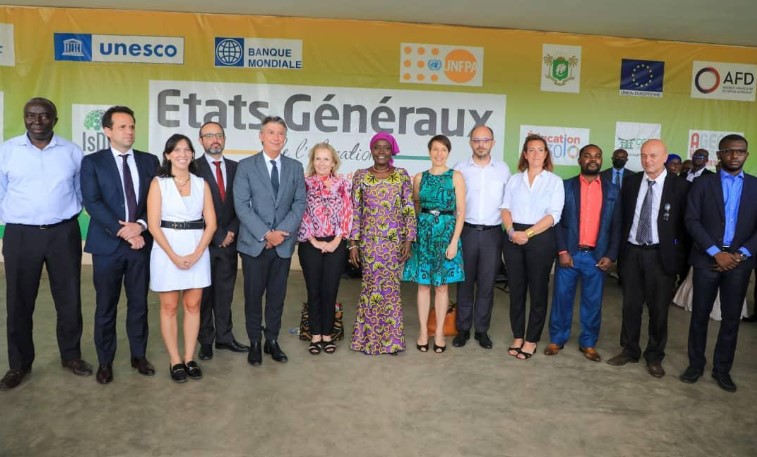Development Progress in Côte d’Ivoire toward Evidence-Based Education Ecosystem
Over the last decade, Côte d’Ivoire has made substantial efforts to improve access to and quality of education. The Ministry of Education of Côte d’Ivoire (MENA) has shown its commitment to refining the education system and improving the quality of education throughout the country. In 2015, Cote d'Ivoire adopted a law establishing compulsory education from the age of 6 to 16. Since 2016, IPA has had the honor of supporting the Ministry of Education by generating evidence that can lead to improved education policies and practices. The Ivorian government has continuously made efforts not only to ensure universal access to education, but also to improve the quality of schooling. Based on the 2019 report by the Programme d’Analyse des Systèmes Éducatifs (PASEC) assessing student levels in primary schools across 13 Francophone African countries, Côte d'Ivoire’s teachers rank among the highest in teachers’ competencies; but Ivorian students lag in mathematics and language. Given this discrepancy, reassessing the country’s policy toward improving educational outcomes means seeking new answers to foundational questions.
To conduct a thorough assessment of the education system, the Ivorian government launched the États Généraux de l’Éducation Nationale et de l’Alphabétisation (EGENA) on July 19, 2021. EGENA is a working group consisting of students, parents, teachers, civil society, government workers, development partners, and stakeholders in education that will propose reforms. Given its history of supporting the Ivorian government in piloting and scaling up social programs, IPA was invited to participate in the EGENA process, alongside the Local Education Partners Group and other stakeholders from the education sector. This partnership has helped to identify policy priorities and provided evidence to inform major reforms in the education sector, especially related to IPA-backed programs and policies including increasing enrollment and attendance, improving learning outcomes, and measuring the impact of information communications technology programs on learning outcomes.

Through robust, inclusive, and participatory approaches such as social dialogue, technical consultation, workshops, and public discussions over the past two years, the recommendations from EGENA were translated into 42 reforms and were adopted by the government’s Council of Ministers in Abidjan on May 3, 2023. These reforms will be carried out over the next ten years at an estimated cost of CFA 866 billion (US$ 1.42 billion). The recommendations and work plans resulting from the EGENA process show positive signs that the use of evidence in education policy making is becoming institutionalized. Examples include recommendations to implement research activities or build monitoring, evaluation, and learning (MEL) strategies to monitor or scale up existing policies. Moreover, challenges and proposed solutions increase MENA’s capacities and prod the whole education ecosystem to generate and use evidence, including by connecting with local education researchers or establishing a dedicated team producing regular analysis at the local level. Thus, current recommendations from the EGENA include:
- Highlighting the need to generate more data to inform policies (e.g., via a strong MEL system) to improve learning practices across programs.
- Strengthening MENA's capacity to generate evidence.
- Highlighting the need to scale up successful programs.
Adopting recommendations from EGENA shows the commitment to institutionalizing the use of quality data in education policy-making is high on the government’s agenda. Research shows that investment in human capital, especially education, contributes to economic development and reduces poverty. In 2021, investments in the education sector represented over 15% of the Ivorian government’s expenditures, three percent lower compared to 2017. Since nationwide reforms are costly, it is crucial that systemic reforms are supported by evidence to lead toward informed policies.
The momentum toward creating an evidence-based education ecosystem is further demonstrated through the Ministry of Education and Alphabetization’s current plans to establish an Education Embedded Lab in Côte d’Ivoire to strengthen the regular use of evidence to improve decision-making, policies, and programs. With IPA’s technical assistance, the education lab could play a key role in supporting the ministry in tackling activities outlined in the EGENA’s final set of recommendations.
While the process is still underway, it is expected that the education lab will contribute to the implementation of rigorous evaluations of proposed education programs, the capacity-building of staff in research and evaluation processes, the scale-up of evidence-informed policy, and the support towards research programs that will inform policy decisions.












